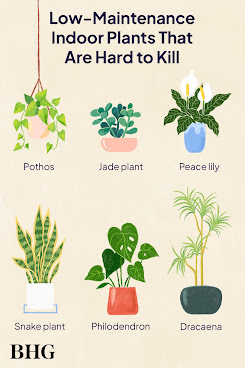Eco-friendly Gardening Practices
Understanding Eco-friendly Gardening
Eco-friendly gardening is all about using methods that are kind to the environment. It's about creating a garden that not only looks beautiful but also helps the planet. By choosing sustainable practices, we can reduce harmful impacts on our earth while enjoying the fruits of our labor!
There are many ways to practice eco-friendly gardening. These methods include everything from using organic seeds to implementing water-saving techniques. The goal is to work in harmony with nature and to ensure that our gardens contribute positively to the ecosystem.
Benefits of Eco-friendly Gardening
One of the best things about eco-friendly gardening is the numerous benefits it provides. First, it promotes biodiversity, which is essential for a healthy environment. When we support various plants and animals in our gardens, we help strengthen the ecosystem!
Additionally, eco-friendly practices often lead to healthier soil and plants. By avoiding harmful chemicals, we make sure that our gardens can thrive naturally. Here are a few key benefits:
- Improved soil quality
- Reduced pollution
- Conservation of water
Choosing Native Plants
One great eco-friendly practice is to choose native plants for your garden. These plants are naturally adapted to your local climate and soil, which means they require less water and maintenance. Plus, they provide food and shelter for local wildlife! To get more details, explore https://www.timberandthrive.com/
Native plants also help to preserve the local ecosystem by preventing invasive species from taking over. When you plant native species, you support the local environment while adding beauty to your garden. It’s a win-win!
Organic Gardening Practices
Another essential part of eco-friendly gardening is organic gardening. This method focuses on using natural fertilizers and pest control instead of chemicals. Organic gardening not only helps the environment but also leads to healthier plants and produce!
Some popular organic practices include:
- Composting kitchen scraps and garden waste
- Using natural pest deterrents like neem oil
- Rotating crops to maintain soil health
Water Conservation Techniques
Water is a vital resource, and conserving it is crucial for eco-friendly gardening. There are many techniques you can use to save water in your garden. One effective method is installing a rain barrel to collect rainwater for irrigation.
Additionally, using mulch can help retain moisture in the soil and reduce the need for frequent watering. Adjusting your watering schedule to the seasons can also make a big difference. Remember, every drop counts!
Encouraging Wildlife
Creating a garden that welcomes wildlife is another eco-friendly practice. By planting a variety of flowers, shrubs, and trees, you can attract beneficial insects like bees and butterflies. These pollinators are crucial for the health of your plants and the environment!
Consider adding features like birdhouses, bee hotels, and water sources to further encourage wildlife. By making your garden a friendly space for animals, you contribute to the overall biodiversity in your area.
Conclusion
Embracing eco-friendly gardening practices is a great way to help the environment while enjoying the beauty of nature. By understanding the benefits, choosing native plants, practicing organic gardening, conserving water, and encouraging wildlife, you can create a thriving garden that’s good for you and the planet!
So, let’s dig in and start making our gardens more sustainable! Together, we can make a positive impact on our environment, one garden at a time.
FAQs about Eco-friendly Gardening
- What is eco-friendly gardening? Eco-friendly gardening involves using methods that are beneficial to the environment, promoting sustainability while creating beautiful gardens.
- What are the benefits of eco-friendly gardening? Benefits include improved soil quality, reduced pollution, and conservation of water, all contributing to a healthier ecosystem.
- Why should I choose native plants for my garden? Native plants are adapted to local conditions, requiring less water and maintenance, and they support local wildlife and the ecosystem.
- What are some organic gardening practices? Popular practices include composting, using natural pest deterrents, and rotating crops to maintain soil health.
- How can I conserve water in my garden? Techniques include installing rain barrels, using mulch to retain soil moisture, and adjusting your watering schedule based on the seasons.
- How can I encourage wildlife in my garden? Attract beneficial insects by planting diverse flowers and adding features like birdhouses and water sources.
- Why is biodiversity important in gardening? Promoting biodiversity strengthens the ecosystem, providing a healthier environment for plants, animals, and humans alike.
Follow Us
Weebly
|
Tumblr
|
Twitter
|
Gravatar
|
Disqus
|
Google Sites
|
Youtube
|
About Me

Comments
Post a Comment